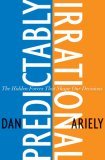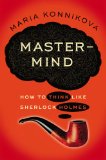new book – ‘A Slap in the Face: Why Insults Hurt–And Why They Shouldn’t’ by William B. Irvine
February 18, 2013
A Slap in the Face: Why Insults Hurt–And Why They Shouldn’t by William B. Irvine (Oxford University Press, USA, 2013)
Book description from the publisher:
Insults are part of the fabric of daily life. But why do we insult each other? Why do insults cause us such pain? Can we do anything to prevent or lessen this pain? Most importantly, how can we overcome our inclination to insult others?
In A Slap in the Face, William Irvine undertakes a wide-ranging investigation of insults, their history, the role they play in social relationships, and the science behind them. He examines not just memorable zingers, such as Elizabeth Bowen’s description of Aldous Huxley as “The stupid person’s idea of a clever person,” but subtle insults as well, such as when someone insults us by reporting the insulting things others have said about us: “I never read bad reviews about myself,” wrote entertainer Oscar Levant, “because my best friends invariably tell me about them.” Irvine also considers the role insults play in our society: they can be used to cement relations, as when a woman playfully teases her husband, or to enforce a social hierarchy, as when a boss publicly berates an employee. He goes on to investigate the many ways society has tried to deal with insults-by adopting codes of politeness, for example, and outlawing hate speech-but concludes that the best way to deal with insults is to immunize ourselves against them: We need to transform ourselves in the manner recommended by Stoic philosophers. We should, more precisely, become insult pacifists, trying hard not to insult others and laughing off their attempts to insult us.
A rousing follow-up to A Guide to the Good Life, A Slap in the Face will interest anyone who’s ever delivered an insult or felt the sting of one–in other words, everyone.
Google Books preview:
See also: Author’s website







